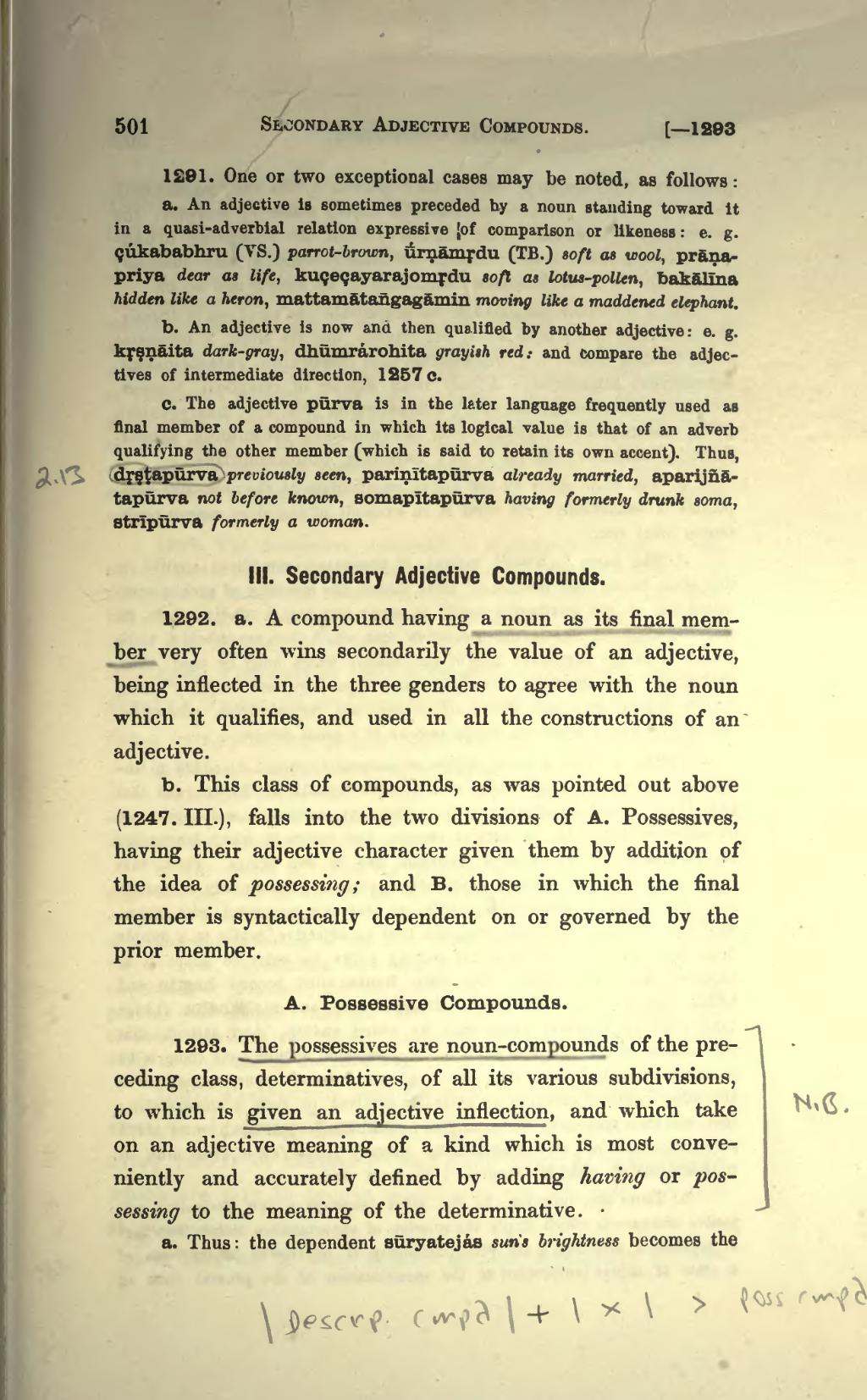1291. One or two exceptional cases may be noted, as follows:
a. An adjective is sometimes preceded by a noun standing toward it in a quasi-adverbial relation expressive of comparison or likeness: e. g. çúkababhru (VS.) parrot-brown, ū́rṇāmṛdu (TB.) soft as wool, prāṇapriya dear as life, kuçeçayarajomṛdu soft as lotus-pollen, bakālīna hidden like a heron, mattamātan̄gagāmin moving like a maddened elephant.
b. An adjective is now and then qualified by another adjective: e. g. kṛṣṇāita dark-gray, dhūmrárohita grayish red: and compare the adjectives of intermediate direction, 1257 c.
c. The adjective pūrva is in the later language frequently used as final member of a compound in which its logical value is that of an adverb qualifying the other member (which is said to retain its own accent). Thus, dṛṣṭapūrva previously seen, pariṇītapūrva already married, aparijñātapūrva not before known, somapītapūrva having formerly drunk soma, strīpūrva formerly a woman.
III. Secondary Adjective Compounds.
1292. a. A compound having a noun as its final member very often wins secondarily the value of an adjective, being inflected in the three genders to agree with the noun which it qualifies, and used in all the constructions of an adjective.
b. This class of compounds, as was pointed out above (1247. III.), falls into the two divisions of A. Possessives, having their adjective character given them by addition of the idea of possessing; and B. those in which the final member is syntactically dependent on or governed by the prior member.
A. Possessive Compounds.
1293. The possessives are noun-compounds of the preceding class, determinatives, of all its various subdivisions, to which is given an adjective inflection, and which take on an adjective meaning of a kind which is most conveniently and accurately defined by adding having or possessing to the meaning of the determinative.
a. Thus: the dependent sūryatejás sun's brightness becomes the
